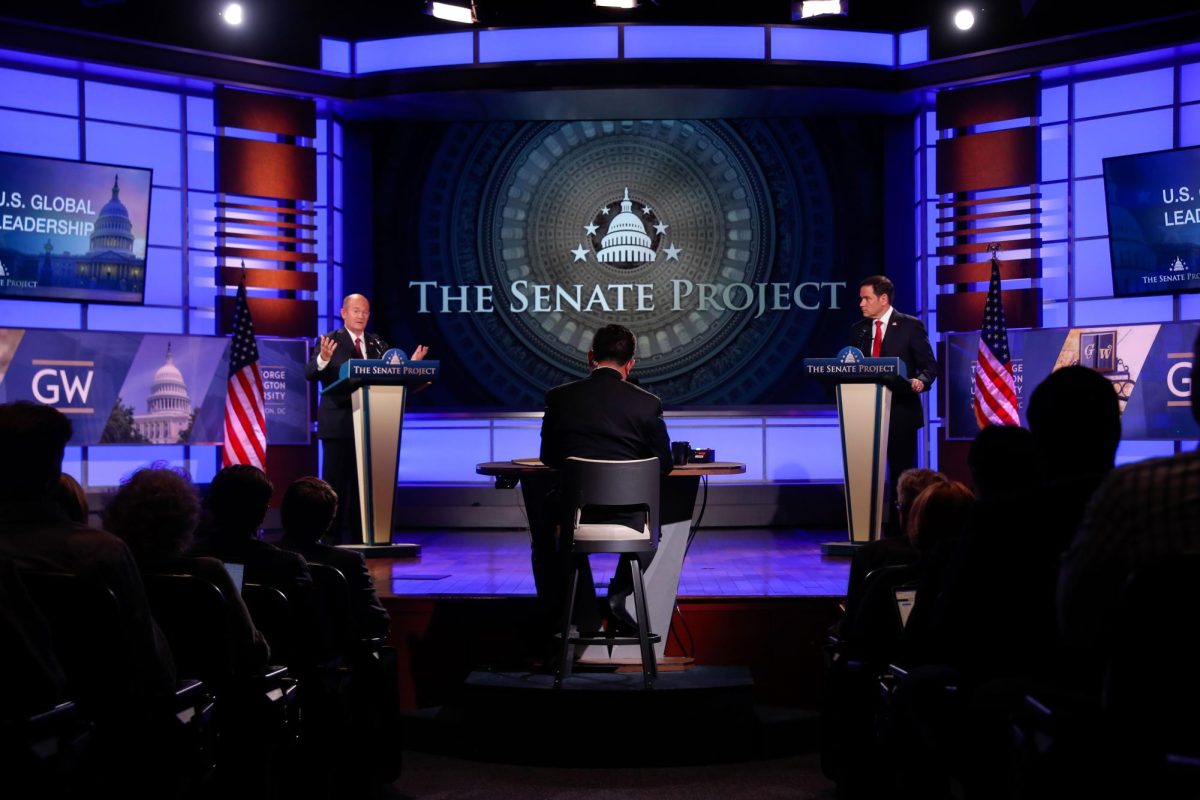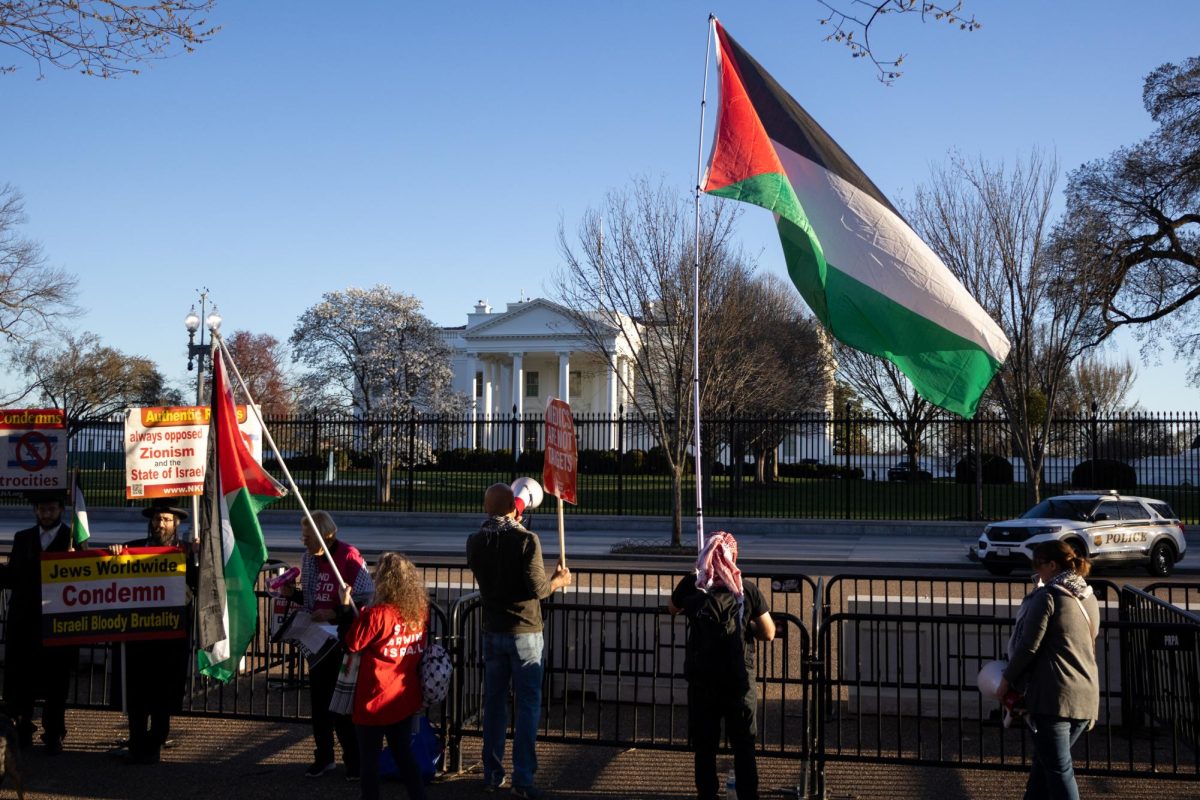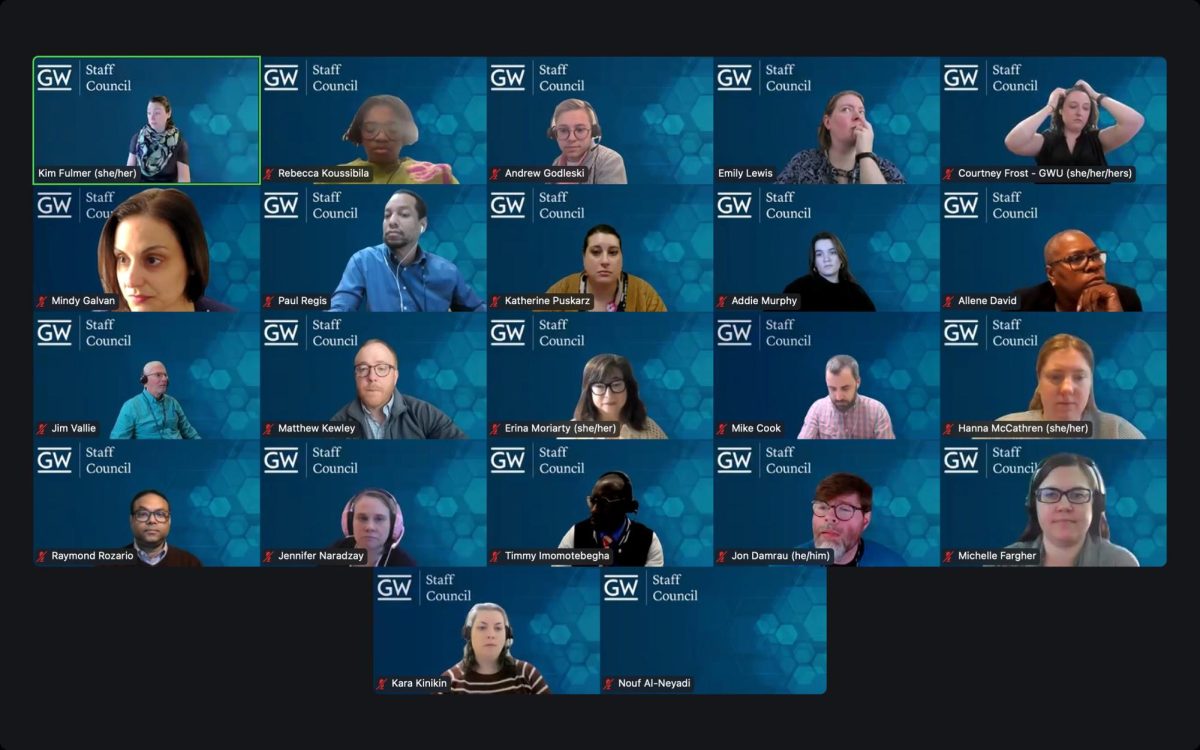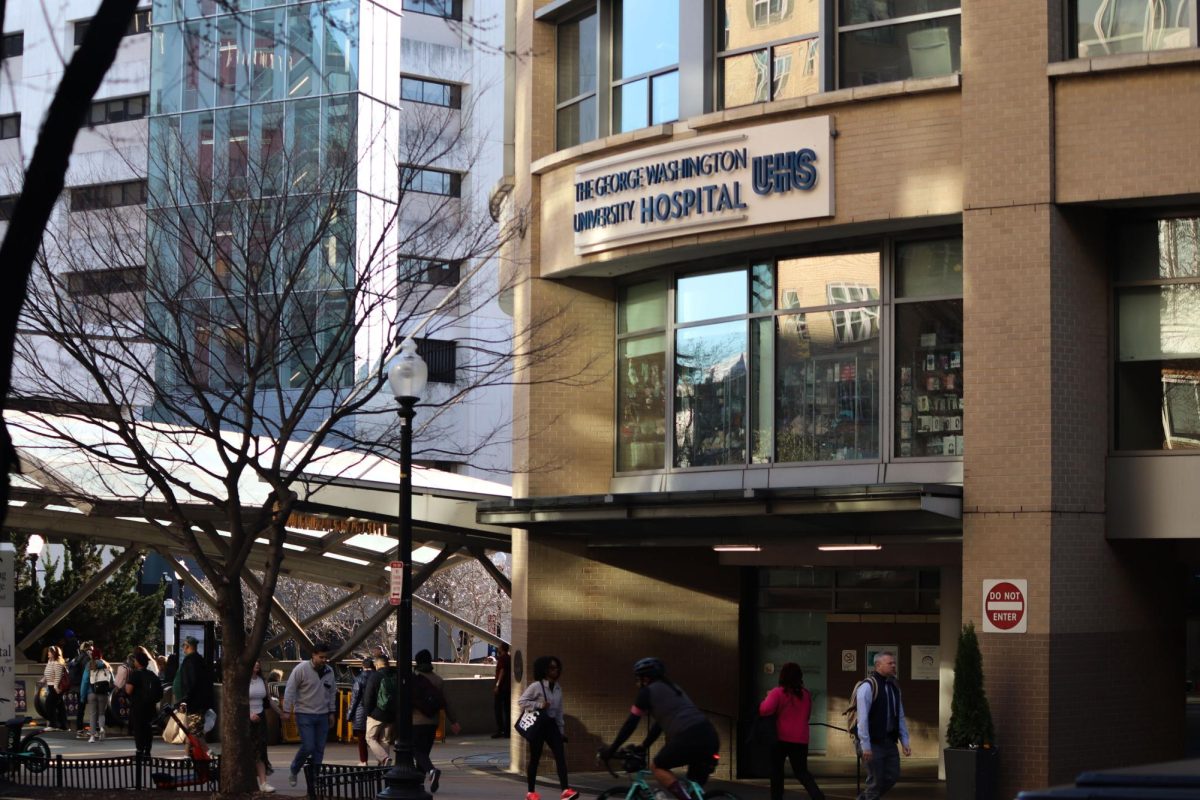Sens. Chris Coons (D-DE) and Marco Rubio (R-FL) debated bipartisan issues facing the United States, including relations between U.S. and China and climate change at the School of Media and Public Affairs on Monday.
During the debate, Rubio said American national interest is the foremost obligation in international affairs and Coons said climate change is the world’s “defining issue.” The event was the fourth installment of the Senate Project Debate Series, an initiative to mend political polarization sponsored by the Edward M. Kennedy Institute, a nonprofit supporting civil discourse in bipartisan policy making; the Orrin G. Hatch Foundation, which promotes civic engagement; and the Bipartisan Policy Center.
CBS News’s Senior White House and Political Correspondent Ed O’Keefe moderated the event.
The debate opened with a discussion about relations between the U.S. and China, a topic Rubio selected because he feels the relationship between the two countries will be the “story of the 21st century.”
In his opening statement, Rubio said he believes China is an “expansionist power” and widespread reliance on Chinese manufacturing has caused upheaval among Western industrialized nations. He said China has used its political lobbying to “influence” American foreign and domestic policy.
“Capitalism did not change China,” Rubio said. “China changed capitalism. It’s used against us as a weapon.”
Coons said he agreed that China is the “leading challenge” for security in American innovation and the nation’s global standing. He said the prominent divide between American political parties and the notion that the U.S. is a “declining power” — according to leaders of the “dozens” of countries he’s visited in past decade — are hindering the U.S.’s ability to effectively counter China’s growth in industry.
Coons said the best way to approach the relationship with China is by finding a “common ground” from which the U.S. policy makers can proceed.
“They say the United States is inevitably headed downward and they are inevitably ascendant,” Coons said. “We can prove them wrong, but doing so begins by strengthening our own internal capability to show that democracy delivers.”
Rubio said U.S. policymakers should pay attention to its relationships with emerging countries that don’t side with either China or the U.S. but benefit from their deals with both countries.

“They’re going to try to leverage both sides and I think we have to be very mature and very strategic about how we approach that in many of these cases,” Rubio said. “Senator Coons is an expert on Africa issues and many of those countries say they don’t want to be forced to pick a side in this thing, they want the benefits of both.”
Coons selected the topics of climate change and energy. He said the Bipartisan Climate Solutions Caucus, a group of 14 senators including Rubio, will be meeting with “critical” mineral industry leaders to discuss approaches to transition to sources of clean energy, citing his support for bills that promote nuclear energy and hydrogen.
Coons said the country should move toward using clean energy, but energy security — the consistent availability of natural resources for energy consumption — is crucial for successful manufacturing.
Rubio said while he has “nothing against” renewable energy, hydrocarbons, oil and natural gas are the world’s primary sources of energy for the “foreseeable future.”
“Abundant and affordable energy is at the core of everything,” Rubio said. “Prosperity, global prosperity, our own prosperity, the ability for an economy to grow or the ability to do anything you do in manufacturing — you need abundant and affordable and reliable energy sources.”
Coons said the U.S. will face far worse economic tolls if climate change goes unaddressed. He said the increasing frequency and strength of natural disasters will prove to be destructive.
“The number of billion dollar disasters per year have increased year after year and they will outstrip our capacity to sustain them or pay for them here in the United States,” Coons said.
Rubio said he wanted to be a part of the debate because the divide between parties has made leaders unable to act and create change.
“Our politics is a mirror that reflects our culture in our society, and American politics are polarized,” Rubio said.
Coons said he decided to participate in the debate because bipartisan solutions last. But in the face of growing polarization, he said his outlook on the future of democracy has moved from “confidence” to “grave concern” in the last few years.
Coons said younger generations should be cognizant of the bipartisan divide and prioritize civil discourse in their everyday lives.
“Democracy doesn’t work if we can’t figure out how to disagree without being disagreeable, how to take a stage, whether it’s the Senate floor or the stage here at GW, and dispute some assumptions, some priorities, some direction, without going after each other personally,” Coons said. “We’ve lost a lot of that. Not just in Congress but in our society.”





